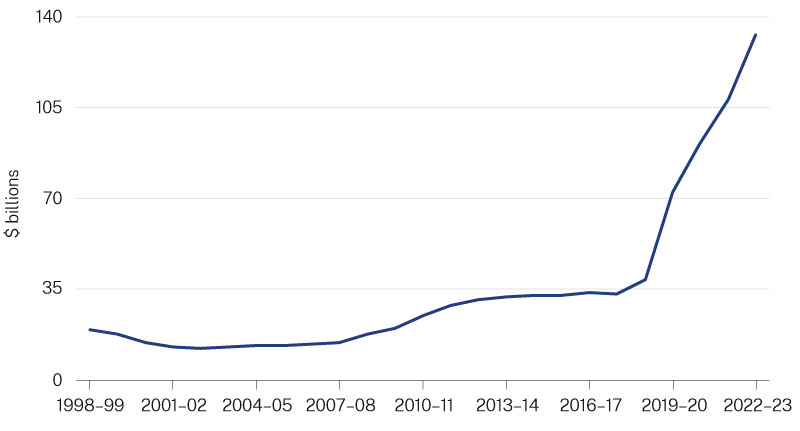Foreword
I’m pleased to present the 2023-24 Budget: the first budget since Labor’s election in March.
We have taken office during challenging economic times.
The people of New South Wales have found their way to a new normal after COVID-19. However, we still face many of the challenges brought on by rapid technology change, climate change, and changes in global political stability.
These challenges and the lessons learned from COVID-19 are causing many societies to rethink the fiscal and economic strategies we employ to deliver a high standard of living and peaceful, stable government.
The challenges we face in New South Wales reflect these global issues. Like many people, we are transforming our sources of energy, looking for ways to house our people affordably, and working out how to improve equality and social connection.
Our greatest challenge, as always, is to live in harmony with each other, and with every living thing on the one planet we all share.
The approach of Labor in New South Wales is based on responsibility and reward, inclusion and opportunity.
Economic stability creates social stability.
Opportunity and reward rely on and enable diversity and cooperation.
Well-managed state finances are the first duty of a government which has a long-term plan to improve the wellbeing of its citizens.
Meeting these challenges
New South Wales is a well-educated, stable, and peaceful democracy with abundant natural resources, thriving diverse cities, and a lifestyle that people envy the world over.
Even in the wealthiest state of a wealthy and lucky country, we cannot rest on our good fortune.
Every person in New South Wales should have an affordable place to call home: a secure base from which to start a family, to bring up children, and to set our next generation on a path to success.
All citizens should have access to health, education, and other essential services. We should respect and reward the people who provide those services.
Despite our wealth, many people within our State are struggling to pay for essentials, like transport, energy, and housing.
New South Wales confronts these challenges at a time when the former Liberal Government had continued pandemic-level spending well after it was needed.
Before this Budget, New South Wales debt was projected to reach $188.2 billion by 2026, and higher interest rates are making many New South Wales debt repayments more expensive, limiting our ability to pay for important programs.
In this Budget, we reckon with these challenges and begin the rebuild.
We have made better choices. Sometimes difficult ones. But we have made the right choices, and because of them, we can deliver the programs and services that our people need.



